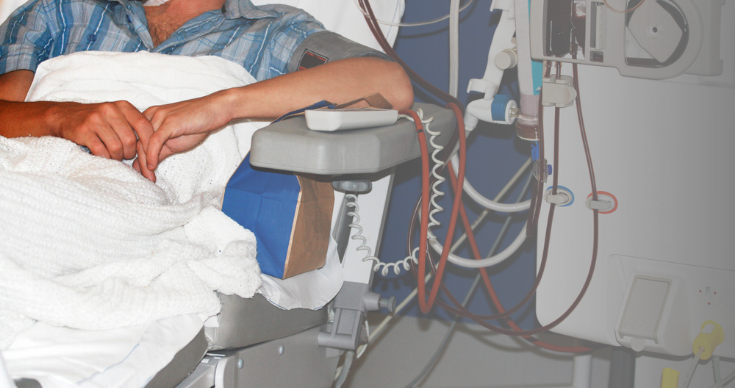How To Prepare For Dialysis – A Patient’s Guide
Kidneys perform the function of purifying the blood, remove excess water and toxins from the body. Dialysis is a procedure that works like artificial kidneys and purifies the blood with the help of advanced machinery. It is done for the people whose kidneys cannot perform its functions anymore.
There are several types of dialysis and it is more common than you might be assuming. However, when a patient is first told that they will need to undergo dialysis, they get scared. Today, we will offer some useful tips regarding how to prepare yourself for dialysis.
Usually, your Dialysis will be done 1 to 4 times a week, and each session takes around 3 to 4 hours. You need to keep the access site clean by washing it before dialysis. Keep your face and access site visible for the staff to keep an eye on, all the time during the process. Dialysis is not generally painful, so while the process goes on, you can be relaxed. You can either read a book/newspaper, watch TV, listen to music or even sleep. Since the machine filters, the blood outside the body and then it is injected back in the body, you might feel cold during the process. So, you can ask for blankets to help you stay warm.
There are some minute complications and side effects that are associated with dialysis. Some occur near the site of injection, these include:
- Bleeding
- Swelling
- Redness
- Tenderness
- Muscle pain
Other side effects are
- Dizziness
- Nausea
- Chest pain
- Breathlessness
- Cramps
- High/low blood pressure
After the dialysis, frequent urination and bloating are quite common. You can also feel very tired and can have body aches. You may need to take rest for the rest of the day as well.
Dialysis can be done at a hospital, doctor’s clinic, pathology center or even at home. However, you and your family members need to have the proper training for the same. Also, it is best to get a doctor or medical staff to oversee the procedure from time to time.
It is quite crucial to ensure that you do not miss your dialysis schedule. However, if you are sick or traveling, you cannot help missing 1 or 2 dialysis sessions. So, in case this happens in your case, don’t forget to inform about the same in advance to your doctor or the team and make arrangements accordingly.
ILS Hospitals offer dialysis facility for the patients suffering from renal damage.
Kidney – Function and Diagnostic Tests
Kidneys are paired organs that purify the blood, controls body fluid and electrolytes and also process the waste out of the body. It is bean-shaped, of about 4 to 5 inches in length that roughly resembles the size of a fist. It sits beneath the ribs, just behind the belly. It purifies the blood by filtering them, from where it absorbs back the minerals, salts, and water, and removes the waste in the form of urine.
Detecting any kidney illness in its early stage is very tricky as even 10 percent of the functioning kidney does a pretty good job. Thus, only best hospitals can offer a quality diagnosis of the kidney. At ILS Hospitals, we offer the following renal diagnostics for providing a quality treatment for any malfunction of kidneys.
1. Kidney ultrasound
The test is carried out by placing the probe transmitting sound waves over the waist. The sound wave gets reflected from the kidney to cast an image. This can help to find the existence of any stones, lumps, cysts or block in the kidney.
2. Urinalysis
It is a routine visual screening of kidney that can be done both by tools or pathologist himself through a microscope. It can help to detect minute signs of kidney damage such as bleeding, infections, or inflammation etc.
3. Ureteroscopy
It is a kind of endoscopy, specific for screening for kidney and its associated organs. The flexible endoscopic is inserted through the urethra into the bladder and then into the ureters. Even though the endoscope does not reach the kidney itself, it helps to detect any possible complications associated with them.
4. Computed tomography
More commonly known as the CT scan is helpful for diagnosis kidneys as well. The scanner captures the detailed X-ray images of the kidney in a series and it is then fed to the computer to analyze any abnormality in the kidneys.
5. Magnetic Resonance Imaging
More commonly known as MRI uses radio waves and magnetic field to yield a high-resolution image of the kidney to detect any abnormality in it.
6. Kidney biopsy
A fine needle is used to extract a small amount of tissue to observe it under a microscope. It can detect the possibility of malignancy in the kidney.
7. Blood and urine test
A sample of blood and urine is extracted and screened for possible infection and microbial growth.
On this month of March, when we observed World Kidney Day, we, at ILS Hospitals encourage every individual to keep a close eye on their respective renal health.












